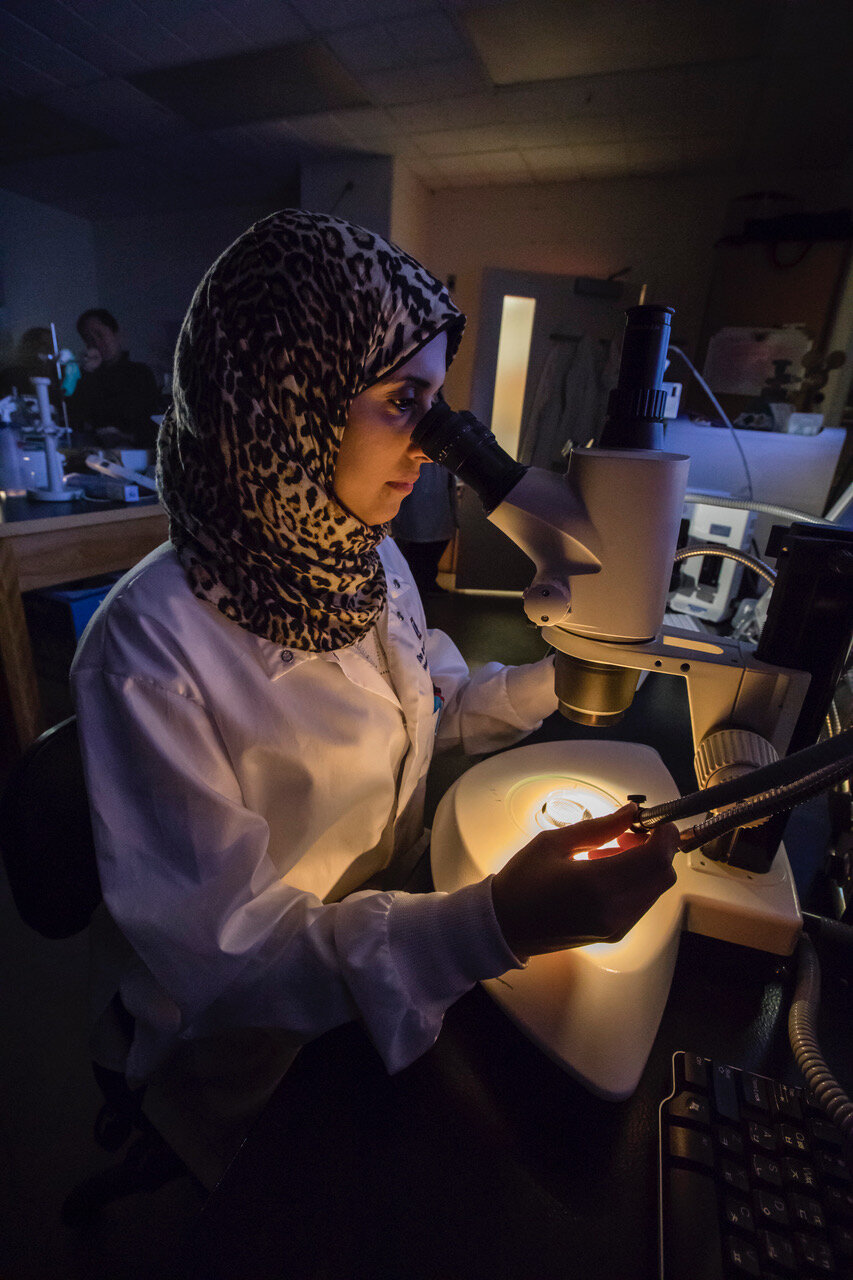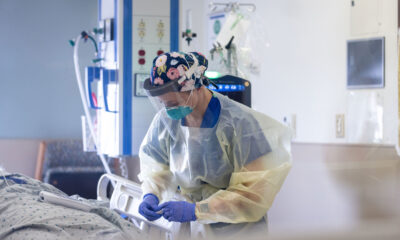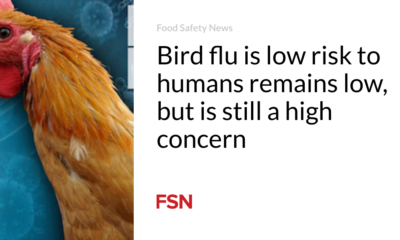Health
Gonadal function in male mice disrupted by prenatal risk factors

Dr. Radawa Barakat is the first author of the paper and a former graduate student in the Ko lab. She is currently a postdoctoral researcher at Iowa State University. Credit: Fred Zwicky
Researchers have consistently shown that prenatal exposure to di(2-ethyhexyl) phthalate harms the reproductive system in male mice and causes fertility defects. In a new study, scientists from the University of Illinois Urbana-Champaign have shown that the combination of DEHP and a high-fat diet in pregnant mice can cause more damage to pups than either factor alone.
Male reproductive disorders are a growing problem due to the worldwide decline in sperm count and quality. Worryingly, chemicals such as DEHP, found in food storage containers, pharmaceuticals and building materials, have been found to be among the contributing factors. DEHP’s toxicity is due to its ability to mimic the hormones in our bodies, leading to long-term health effects.
“The scientific community is aware of the fact that the current generation of men produces half as much sperm as the previous one,” says CheMyong Jay Ko (EIRH), professor of veterinary medicine. “Although shocking, not much attention is paid to understanding the causes.”
The researchers used the Barker hypothesis to guide their research. The hypothesis, proposed by British physician and epidemiologist David Barker, stated that the nine months in the womb are one of the most critical periods of a person’s life and could determine their future health trajectories.
“The Barker hypothesis focuses primarily on nutrition and we wanted to test whether the mother’s diet could change the health of the next generation,” Ko said. “Additionally, unlike the previous generation, we are constantly exposed to chemicals like DEHP, which can change the way our bodies function. We wanted to ask whether exposure to both of these factors could cause growing babies to have less well-functioning reproductive systems to have.”
In the past, both the Ko lab and other research groups have shown that prenatal exposure to DEHP lowers testosterone levels and causes fertility abnormalities in male mice. In addition, scientists have shown that a high-fat diet from the mother can also lower sperm count in male offspring. However, the effects of both together had not been investigated.
The researchers used four groups of pregnant mice; one was a control group and the other three were exposed to DEHP, a high-fat diet, or a combination of both. They then monitored each litter, which consisted of an average of 6 male and 6 female pups.
“Surprisingly, we found that a high-fat diet had a more damaging effect on the male reproductive systems compared to DEHP alone, and that the pups born to mothers treated with both had the worst outcomes,” Ko said.
The researchers measured the weight of the body and various reproductive organs in puppies during different stages of growth and puberty. They found that although the body weight of pups born to mothers fed a high-fat diet alone or in combination with DEHP was higher than that of other pups, the weight of the reproductive organs was lower. They also found that these mice produced less sperm and had lower testosterone levels. By staining the tissues, the researchers discovered that the reproductive organs had abnormal cells, which contributed to the gonadal dysfunction.
“In our studies, we used these mice as a model. Although we need to confirm these results in humans, this study should serve as a warning to our generation that we need to be careful with our environment and diet during pregnancy,” Ko said . .
The study “Prenatal exposure to di(2-ethylhexyl) phthalate and a high-fat diet synergistically disrupts gonadal function in male mice” was published in Biology of reproduction.
More information:
Radwa Barakat et al., Prenatal exposure to di(2-ethylhexyl) phthalate and a high-fat diet synergistically disrupts gonadal function in male mice, Biology of reproduction (2024). DOI: 10.1093/biolre/ioae029
Quote: Gonadal function in male mice disrupted by prenatal risk factors (2024, June 15) retrieved June 15, 2024 from https://medicalxpress.com/news/2024-06-gonadal-function-male-mice-disrupted.html
This document is copyrighted. Except for fair dealing purposes for the purpose of private study or research, no part may be reproduced without written permission. The content is provided for informational purposes only.













